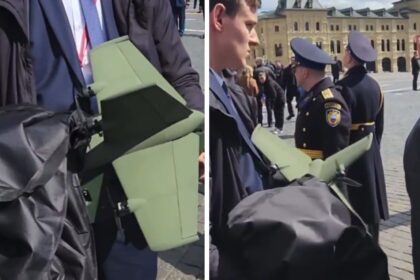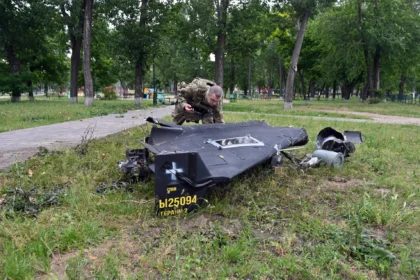Imagine dropping your wallet in the middle of a bustling city and actually getting it back, complete with every single banknote and card inside. For most people, this scenario sounds like wishful thinking. Yet in Helsinki, it is more of a likely reality than a miracle.
A recent global trust experiment has once again put the Finnish capital under the spotlight, proving that honesty is still alive and well — at least in certain corners of the planet. In this unusual ranking, Helsinki did not just perform well; it topped the list as the safest city in the world to misplace something as valuable as your wallet.
The findings challenge many common assumptions about big cities. While crowded urban spaces are often associated with anonymity and risk, Helsinki seems to have found a way to blend modern life with old-fashioned trust. This combination has made it a city where losing your wallet is far less of a disaster than elsewhere.
The experiment that caught the world’s attention
The ranking was based on a simple but telling method. Researchers “lost” wallets in various cities around the globe, leaving them in public places such as parks, shopping centers, and busy streets. Each wallet contained the equivalent of a modest sum of cash, contact information, and personal items that would make it easy for a finder to identify the owner.
In Helsinki, the results were astonishing. Almost every single wallet was returned to its rightful owner within a short time, and often accompanied by a friendly phone call or even a warm smile from the finder. This was not a one-off event — similar experiments in previous years have shown consistent patterns of honesty among the city’s residents.
Such outcomes speak volumes about the social fabric in the Finnish capital. While laws and security measures play a role, the underlying factor appears to be cultural. Helsinki’s community-oriented mindset encourages people to take responsibility for one another, even when no one is watching.
A culture built on trust
Finland has long enjoyed a reputation for high levels of trust, both in personal relationships and public institutions. From early childhood, citizens are taught the importance of integrity and fairness. This value system extends into everyday life, influencing even the smallest actions — like picking up a lost wallet.
Visitors often notice how relaxed the atmosphere feels in Helsinki. Cafes sometimes leave pastries unattended for self-service, children walk to school on their own, and bicycles are often left unlocked outside shops. In many countries, such behaviors might be considered careless, but here they are a reflection of mutual respect.
This deep-seated trust also benefits the economy. Businesses operate with the expectation that customers will act honestly, reducing the need for expensive security systems. The result is a city where the social contract is not enforced solely by rules but by a shared belief in doing the right thing.
How Helsinki compares to other cities
While Helsinki excelled in the test, other cities told a different story. In some places, fewer than two out of ten wallets were returned, with finders often keeping the contents for themselves. Large, densely populated metropolises in particular struggled to match the Finnish capital’s remarkable return rate.
Interestingly, smaller towns in various countries performed better than their nation’s major cities, suggesting that community ties may be a key factor in honest behavior. However, even when compared to smaller, close-knit communities, Helsinki still came out on top — a sign that its culture of integrity runs deep regardless of its size and status as a capital.
Experts suggest that factors like economic stability, low crime rates, and strong social services also play a role. When basic needs are met and people feel secure, the temptation to keep a lost wallet may be reduced. In Helsinki, such conditions are combined with a long tradition of civic responsibility, creating an environment where returning lost property is the norm rather than the exception.
Why this matters beyond Finland
Although the idea of losing a wallet and having it returned might seem like a small detail, it points to something much bigger — the level of trust in society. High trust communities tend to enjoy lower crime rates, stronger economies, and better quality of life.
The Helsinki example shows that this trust is not just an abstract value but a practical force that shapes daily life. It encourages residents to look out for one another, reduces social tension, and makes the city more welcoming to newcomers. For tourists, it adds a sense of safety that can transform their travel experience.
Some urban planners and policymakers believe that lessons from Helsinki can be applied elsewhere. Encouraging civic pride, improving social support systems, and promoting community engagement could help other cities become safer and more trustworthy. However, they also acknowledge that cultural change takes time — and that trust, once broken, is difficult to rebuild.
A symbol of what is possible
Helsinki’s top ranking as the safest city in the world to lose a wallet serves as a reminder that honesty still exists on a large scale. In an age when stories of scams, theft, and dishonesty dominate headlines, it is refreshing to see a place where the opposite is true.
The experiment may have focused on something as ordinary as a wallet, but its implications are far-reaching. It is a testament to how shared values can protect even the most vulnerable among us — and how a culture of trust can turn a potential disaster into a surprisingly positive experience.
For those who have ever lost something precious, the idea of it being returned intact might seem almost too good to be true. Yet in Helsinki, it is simply a part of everyday life. And perhaps, in a world that often feels less connected, that is exactly the kind of news worth paying attention to.










